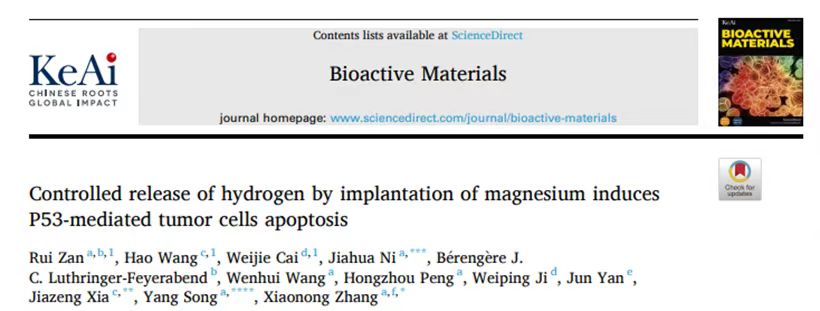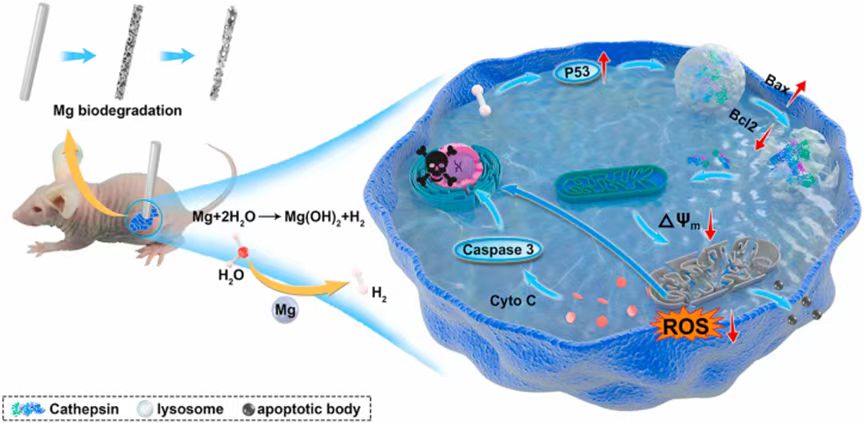Have any questions?
Have any questions?

In recent years,inhale hydrogen have been found to treat certain diseases, such as inflammation and brain damage. At present, the medical mechanism of H2 Inhalation Machine is mainly because it can reduce the level of toxic reactive oxygen species. However, the mechanism of action of hydrogen molecules for certain diseases, such as tumors, remains unclear.
Traditional hydrogen uptake methods have limited therapeutic effect on deep tumors because hydrogen cannot reach high concentrations around the tumor. To address these issues, therapeutic strategies that release hydrogen locally have begun to be investigated, such as direct injection or targeting into tumor tissue using nanoparticles that can release hydrogen. However, these nanoparticles are often nondegradable and cytotoxic, increasing health risks for patients.
Professor Zhang Xiaonong’s team at Shanghai Jiao Tong University designed a method to regulate the hydrogen release rate around tumors. By adjusting the exposed surface area of magnesium metal implants, local controllable and efficient hydrogen gas delivery can be achieved, thereby improving the effect of tumor treatment. Experimental results show that Hydrogen machines can block tumor cell division, induce apoptosis, and ultimately inhibit tumor cell proliferation. Further research found that hydrogen molecules can induce tumor cell apoptosis by regulating the lysosome-mitochondria-mediated apoptosis signaling pathway. By upregulating the expression of the tumor suppressor gene p53, it depolarizes the membrane potential of mitochondria, activates autophagy to produce apoptotic bodies, and removes reactive oxygen species in tumor cells, ultimately leading to tumor cell apoptosis.
In vivo animal experiments have verified the anti-tumor effect of locally released hydrogen. Magnesium implants control the exposure area of magnesium to body fluids and achieve a controllable dissolved hydrogen concentration around the tumor, thereby improving the effect of tumor treatment.

Figure: Up-regulation of p53 through the lysosome-mitochondria pathway can mediate H2 induction of tumor cell apoptosis.
Taken together, this study identifies a way to inhibit tumors through the local release of hydrogen gas. Hydrogen inhaler can induce tumor cell apoptosis by regulating the lysosome-mitochondria-mediated apoptosis signaling pathway. These findings provide potential applications for anti-tumor therapy using magnesium implantable devices to control hydrogen gas release.